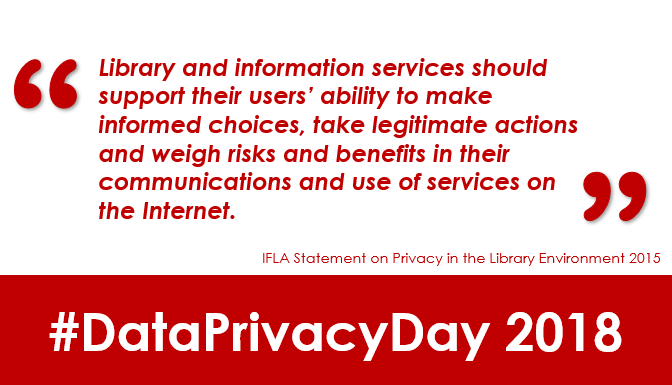Libraries are specialised in preserving, storing and giving access to information. They have long understood its power to drive research, creativity, and development. And they have done so since long before terms such as knowledge management, evidence-based policy-making, or anything ‘smart’ were invented.
It is this understanding that also makes libraries powerful contributors to efforts to promote data privacy.
A New Frontier Between the Public and Private… or none at all?
Thanks to the way the Internet works, it’s not just famous people, or significant events, that are the subject of data collection, but everyone. The servers of governments and Internet businesses contain libraries of information about normal citizens and their behaviour online. Libraries and library suppliers too can risk doing this, although fortunately there are now effective alternatives available that eliminate or minimise collection of data.
Meanwhile, social media has blurred the line between the private and the public, without many of us fully understanding the implications of publishing information about our families or political views to the world. In other cases, the implications are all too clear, for example in the case of phenomena such as revenge porn or witch-hunts against individuals.
This poses a significant question as to how the right to live without arbitrary attacks on privacy (Article 12 of the Universal Declaration on Human Rights) can be defended.
Laws Are Not Enough
The law does of course have a role. Data protection legislation has the potential to cut back on speculative data collection by companies. In Europe at least, firms and others will have to be clear about what information they are gathering, and how it will be used. Citizens will have the possibility to ask to see what data is held, and for it to be deleted.
However, it is not clear how many will actually make use of these rights, or read the necessary small print. Moreover, governments will still be able to claim that national security – for right or for wrong – justifies attacks on privacy. The most effective response is to empower the individual, giving them the knowledge and tools necessary to look after themselves.
Information Specialists and Empowered Individuals
Thanks to their expertise – but also their trusted role in the community – libraries can play a powerful role. In line with the IFLA Statement on Privacy in the Library Environment (2015), library cryptoparties have taken place the UK, France, the Netherlands, Australia, Sweden, the US, Canada, and Germany, to name just a few.
These explore everything from specific tools, such as ToR routers or anti-tracking software, to simpler behavioural changes which can reduce or manage risks. While much of the discourse around cryptoparties focuses on government surveillance, good data hygiene is just as applicable in dealing with unwanted attention from businesses, hackers, or even members of personal networks.
Indeed, data privacy is a vital part of broader digital literacy – the ability to get the best out of the opportunities that digital technologies offer. When a user cannot be confident about what is happening with their data, this is not possible. Libraries can make the difference.
